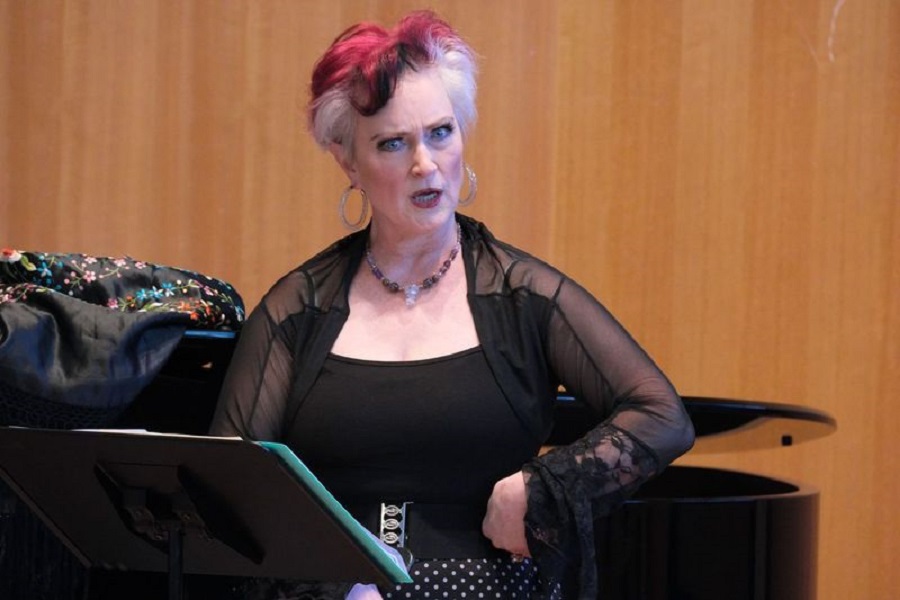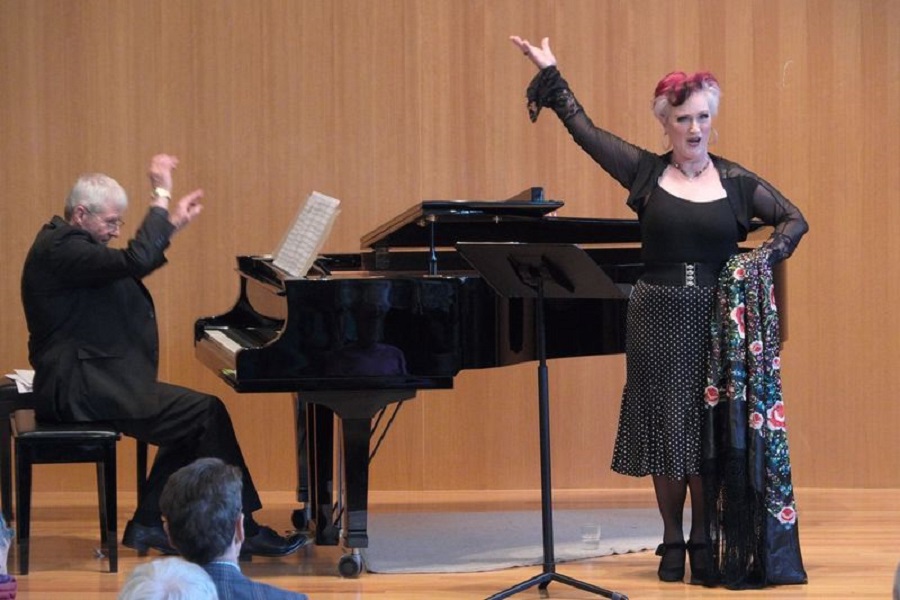
Music / Gardens of Spain, Sarahlouise Owens & Stuart Long. At Wesley Music Centre, September 14. Reviewed by GRAHAM McDONALD.
This was an hour of Spanish folksong arranged for voice and piano sung by Sarahlouise Owens accompanied by pianist Stuart Long.
Owens has a strong confident soprano of impeccable pitch and impressive dynamics while Long is a sympathetic accompanist who captured the guitar-like scoring of the musical backing, but also charmed with a solo tango by Isaac Albeniz.
The songs were from the well-known collections by Manuel de Falla and Federico Garcia Lorca with the addition of another, less well-known set from Eduardo Toldra, a Catalan composer and conductor who founded the Barcelona Symphony Orchestra in 1944.
De Falla’s Siete Canciones populares Espanolas was written in 1914 and the seven folksongs are from all over Spain from Asturias in the north-west to Murcia in the south-east. All are quite different, but there is a deeply Spanish flavour to all of them as de Falla captured the core of the music, albeit in a slightly formalised manner. The flamenco origin of the fifth song Nana was unmistakable with distinctive melodic ornamentation and one wonderful note that sat delightfully in the space between the piano keys.

Lorca’s 13 canciones espanolas antiguas are quite different in feel, sounding at times more like children’s rhymes with repetitive choruses. They still keep a folksong feel, but without the extremes of flamenco. It is a more genteel music, for the salon rather than the marketplace or farmyard.
The settings of Eduardo Tolda in 12 canciones populares espanolas continued much in the same style. These are certainly melodic and pretty arrangements, reminding me of Songs of the Auvergne, the settings of French folksongs by Joseph Cantaloube.
A well-deserved encore was an opportunity for Owens to mention a new music project around the life and music of 19thcentury English singer Anna Bishop – opera’s Bad Girl, considered the most widely travelled singer of the era who toured Australia, the Americas and Asia in the 1860s surviving shipwrecks and Mexican bandits.
Who can be trusted?
In a world of spin and confusion, there’s never been a more important time to support independent journalism in Canberra.
If you trust our work online and want to enforce the power of independent voices, I invite you to make a small contribution.
Every dollar of support is invested back into our journalism to help keep citynews.com.au strong and free.
Thank you,
Ian Meikle, editor




Leave a Reply